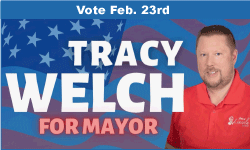Facebook 'unfriends' Australia: news pages go dark in test for global
publishing
 Send a link to a friend
Send a link to a friend
 [February 18, 2021] By
Byron Kaye [February 18, 2021] By
Byron Kaye
SYDNEY (Reuters) - Facebook faced an angry
backlash on Thursday after blocking news feeds in Australia in a
surprise escalation of a dispute with the government which could be a
test for the future of online publishing worldwide.
The move was denounced by media groups, politicians and human rights
groups in Australia and beyond, as it became clear that official health
pages and emergency warnings had been scrubbed along with news sites,
just three days before the launch of a nationwide COVID-19 vaccination
programme.
"Facebook's actions to unfriend Australia today, cutting off essential
information services on health and emergency services, were as arrogant
as they were disappointing," Prime Minister Scott Morrison wrote on his
own Facebook page.
"These actions will only confirm the concerns that an increasing number
of countries are expressing about the behaviour of Big Tech companies
who think they are bigger than governments and that the rules should not
apply to them."

The dispute centres on a planned Australian law, which would require
Facebook and Google to reach commercial deals to pay news outlets whose
links drive traffic to their platforms, or agree a price through
arbitration.
Although Australia is a small market, the law is being closely watched
around the world by regulators, and could be a test case for a bigger
global push to force internet giants to share more of their revenue with
content providers.
News publishers outside Australia leapt on Facebook's tactics as
evidence that the company, which also owns Instagram and WhatsApp,
cannot be trusted as the gatekeeper for their industry.
Banning news during a global pandemic was "a classic example of a
monopoly power being the schoolyard bully, trying to protect its
dominant position with scant regard for the citizens and customers it
supposedly serves," said Henry Faure Walker, chairman of Britain's News
Media Association industry group.
Facebook said it had blocked a wide swathe of pages because the draft
law did not provide clearly define news content. It said its commitment
to combat misinformation had not changed, and it would restore pages
that had been taken down by mistake.
"The actions we're taking are focused on restricting publishers and
people in Australia from sharing or viewing Australian and international
news content," a company spokesman said. "As the law does not provide
clear guidance on the definition of news content, we have taken a broad
definition in order to respect the law as drafted."
DIFFERENT STRATEGIES
Publishers say platforms such as Google and Facebook have hoarded the
vast bulk of revenue as media shift online, even as print and broadcast
advertising shrivels, forcing newspapers, magazines and TV and radio
stations to shut newsrooms.
The move in Australia represents a split between Facebook and Google,
which had joined together for years to campaign against such laws. Both
had threatened to cancel services in Australia, but Google instead
sealed preemptive deals with several media outlets in recent days.
[to top of second column] |

A 3D printed Facebook logo is seen in front of displayed Australia's
flag in this illustration photo taken February 18, 2021.
REUTERS/Dado Ruvic/Illustration

Rupert Murdoch's News Corp was the latest to announce a deal in which it
will receive "significant payments" from Google in return for providing
content for the search engine's News Showcase account.
The Facebook pages of state-funded Australian Broadcasting Corp. went
blank, along with those of Australia's two big metro newspaper chains,
Nine Entertainment Co Ltd and News Corp. International outlets such as
the New York Times, the BBC and Reuters also became invisible.
Also affected were scores of charity accounts, and major state
government accounts, including those providing advice on the coronavirus
pandemic and bushfire threats at the height of the summer season, though
some of these were later restored. Even Facebook's own page was briefly
taken down.
Facebook shares traded down 1.1% in premarket dealings on Thursday.
CHARITIES JOIN CONDEMNATION
Facebook said in its statement that the law, expected to be passed by
parliament within days, "fundamentally misunderstands" the relationship
between itself and publishers and it faced a stark choice of complying
or banning news.
The tech giant has said news makes up just 4% of what people view on its
website. But for Australians, Facebook's role in news delivery is growing. A
2020 University of Canberra study found 21% of Australians use social media as
their primary news source and 39% of the population uses Facebook to receive
news.
Lisa Davies, editor of The Sydney Morning Herald newspaper, owned by Nine,
tweeted: "Facebook has exponentially increased the opportunity for
misinformation, dangerous radicalism and conspiracy theories to abound on its
platform."

Charities whose pages were affected joined in the condemnation: "Demand for food
relief has never been higher than during this pandemic, and one of our primary
comms tools to help connect people with #foodrelief info & advice is now
unavailable," tweeted Brianna Casey, chief executive of hunger relief charity
Foodbank. "Hours matter when you have nothing to eat. SORT THIS OUT!"
Human Rights Watch called the move "an alarming and dangerous turn of events".
"Cutting off access to vital information to an entire country in the dead of the
night is unconscionable."
(Reporting by Byron Kaye; Editing by Jane Wardell, Kim Coghill, Peter Graff and
Keith Weir)
[© 2021 Thomson Reuters. All rights
reserved.] Copyright 2021 Reuters. All rights reserved. This material may not be published,
broadcast, rewritten or redistributed.
Thompson Reuters is solely responsible for this content. |